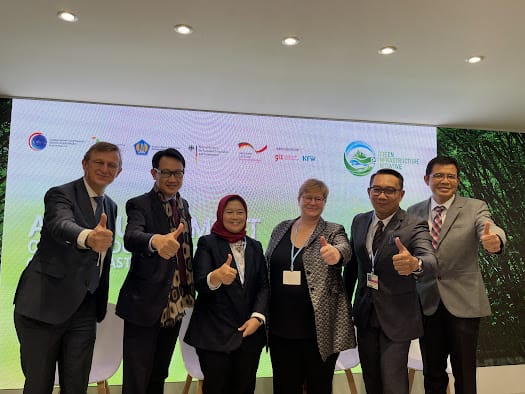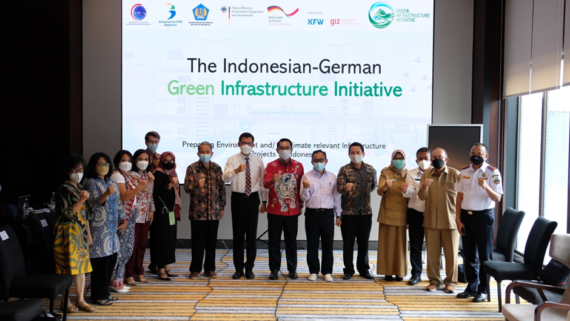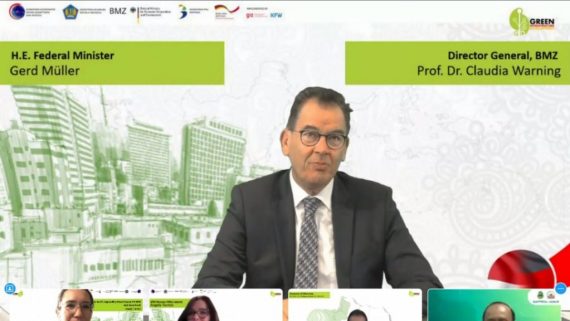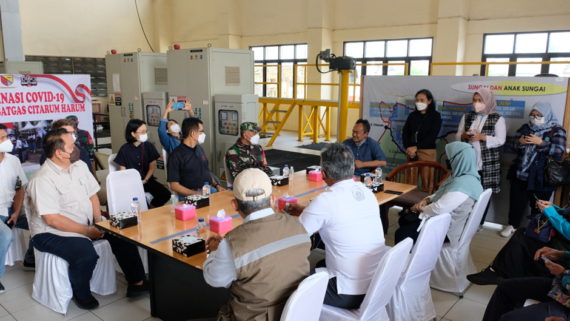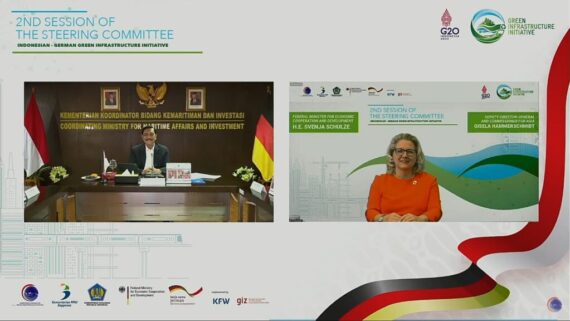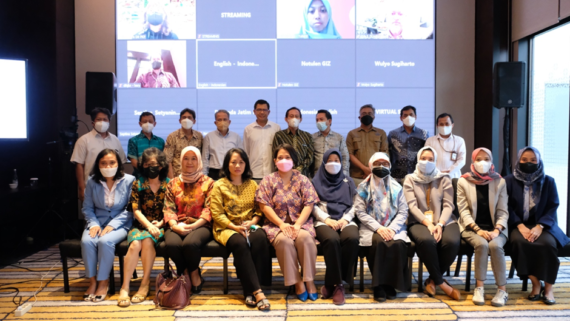Indonesia and Germany Tackle Global Challenges of Climate Change Together through Green Infrastructure Initiative
On a side event of the COP 26 UN Climate Change Conference in Glasgow on 2 November 2021, Indonesia and Germany announced a strategic initiative tackling global and burning challenges of climate change through the Green Infrastructure Initiative (GII). The initiative is considered a new chapter on identifying, developing, and implementing environment and climate-relevant infrastructure investments.
“We expect that through this strategic mechanism of our cooperation, we will be able to considerably increase the efficiency and effectiveness of our efforts to fight climate change in line with the urgency of the matter of which we are all aware”, said Prof. Claudia Warning, Director General of the German Federal Ministry of Economic Cooperation and Development (BMZ).
“The GII should become a new standard for cooperation and financing of green activities worldwide”, said the Indonesian Ambassador to Germany Arif Havas Oegroseno. In a different session, the Indonesian Coordinating Minister of Maritime Affairs and Investment (CMMAI), Luhut B. Pandjaitan, emphasized the great importance of comprehensive, integrated infrastructure solutions to reduce the rivers’ pollutions and stop them from going to the ocean. He stated that GII is an ‘innovative way to accelerate and prioritize such environment and climate relevant infrastructure projects’
In the panel, the participants conveyed their remarks on the unique viewpoints and the challenges to make the initiative happen and implement it successfully. Stephan Opitz, Member of the Management Committee, KfW Development Bank, Europe and Asia added from the perspective of a development bank that the GII encompasses an innovative and flexible financing mechanism. From his point of view, it caters to the needs of the Indonesian Government to finance infrastructure projects in each specific province or sector.
Meanwhile, according to Indonesian Deputy Coordinating Minister Nani Hendiarti, the challenge Indonesia faces on GII would be identifying the projects and establishing a coherent communication mechanism with and between local governments on this complex initiative. This was then echoed by Governor of West Java Province Ridwan Kamil. However, notwithstanding the substantial challenges, they are both hopeful: “West Java appreciates the initiative. It is time to fix and fight global warming. This is not in everybody’s mindset yet, and that’s why educating this green initiative is not easy.”
“No more business as usual”, said Deputy Coordinating Minister Nani Hendiarti in her opening remarks. “Instead, we need innovative, strategic, and agile approaches to tackle the global challenges”.
The Green Infrastructure Initiative was agreed upon in 2019 in Berlin and encompasses a five-year Financial Cooperation (FC) facility of up to EUR 2.5 billion to support environment- and/or climate-relevant infrastructure projects together with grant financed technical cooperation to jointly identify and prepare projects. Its political steering committee is chaired by the Indonesian Coordinating Ministry of Maritime Affairs and Investment (CMMAI) and the German Federal Ministry of Economic Cooperation and Development (BMZ). Its objective is to promote the development of environment- and/or climate-relevant infrastructure projects in Circular Economy and Solid Waste Management, Water and Wastewater Management, and Urban Public Transport. The GII is currently under operation in four provinces: West Java, Central Java, East Java, and Bali. It is planned that the GII will expand to two more provinces, which are the Special Region of Yogyakarta and another province in Eastern Indonesia.
 English
English Indonesia
Indonesia
